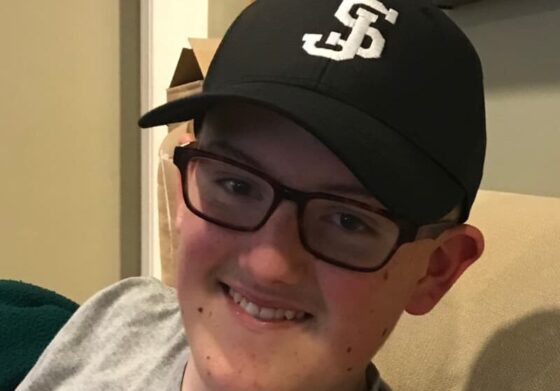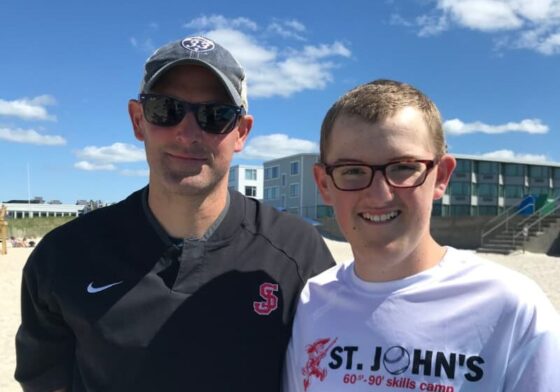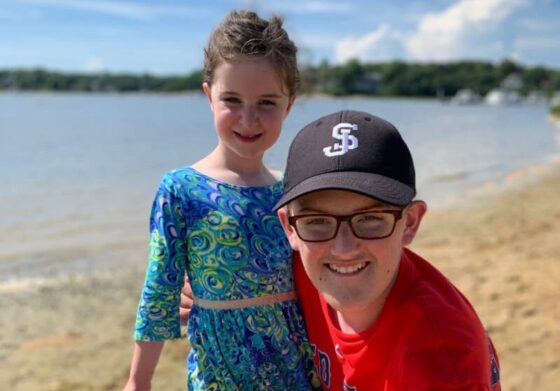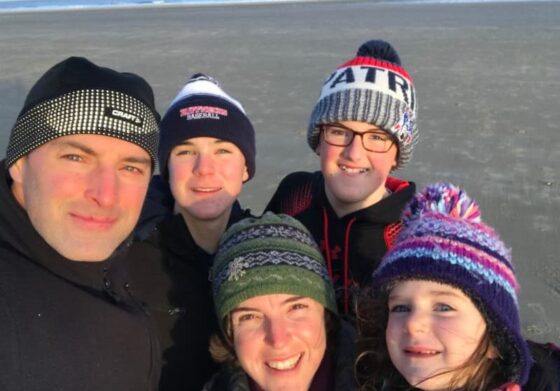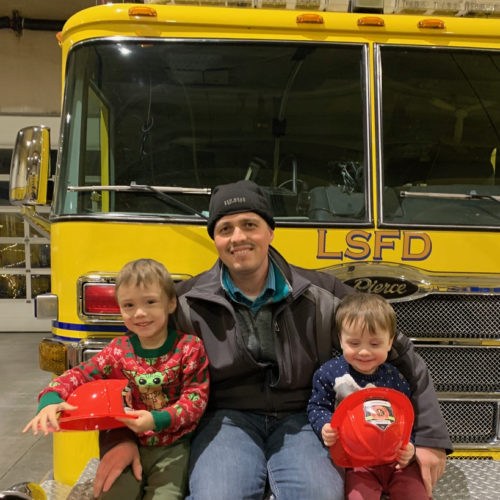(Shared by Matthew’s parents, Kelly and Chris Benestad)
The more that we reflect back on our experience, the more we have come to understand the vital importance of early detection.
Our son, Matthew, complained of some pain and discomfort in his groin area. Now that we look back on it, the fact that he was complaining at all should have been an immediate red flag for us because Matthew is stoic and very rarely complains. When he first came to us with his groin pain, we assumed that he had pulled a muscle. His eighth grade basketball season had just started.
“Matthew did not look sick, which is honestly one of the scariest things about cancer.”
Matthew didn’t have consistent pain. There were days that he had discomfort, but there were days that he had no pain at all. In fact, he didn’t have any pain while actually playing basketball. Instead, he reported being more uncomfortable when he was lying down or inactive. After about two weeks of inconsistent pain, we made an appointment with our primary care physician. We scheduled an appointment for him to have his groin looked at, and to get his annual flu shot.
The appointment was scheduled for a Tuesday in November. On the day before his appointment, Matthew told us that the pain was gone, and we almost cancelled his doctor’s appointment. The only reason we didn’t cancel was that he still needed a flu shot. When we look back on it now, it is amazing how important that flu shot appointment was for our family.
While we weren’t aware of it when it happened, we learned later that Matthew had vomited at school. He hadn’t been feeling nauseous before he got sick. He had no fever and no other symptoms of a stomach bug. So that was unusual. At the time, we didn’t think too much about it, but after his surgery, the doctor told us that the vomiting could have been a side effect of the presence of the tumor in his testicle.
When Chris took Matthew in for his appointment, he had his flu shot and the doctor did a groin check. Following the exam, the doctor recommended that Matthew go to radiology for imaging. While we didn’t think anything would come of it, and even worried it was a waste of time, we took him, and it was during that exam that Chris noticed the resident and attending physician were taking a long time looking at the screen. They left the room and came back in with the head of radiology, who said she also wanted to take a look.
The doctor performed an ultrasound and then in a very serious manner told Chris that our primary care doctor would be calling us shortly to speak to both of us. Chris immediately knew there was a tumor. He didn’t need a doctor to tell him. The look on her face said it all.
When we spoke with the PCP, we learned that there was a tumor in Matthew’s right testicle, and that they would operate the next day. What we had initially thought was a groin pull was the deferred pain from the presence of the tumor.
By that Friday, Matthew had surgery. He recovered quickly, and returned to school and his normal activities. Unfortunately, the follow up scan in December showed that the cancer had spread to his lower abdomen, and that chemotherapy was needed. He had three months of chemotherapy.
Matthew did not look sick, which is honestly one of the scariest things about cancer. His cancer could have gone undiagnosed if he didn’t tell us about his groin pain, and if we didn’t keep that doctor’s appointment, and if our doctor didn’t immediately recommend an ultrasound. Paying attention to the intermittent pain and discomfort he was feeling and speaking up about it is what caused Matthew to be diagnosed.
Early detection was so important for Matthew; it enabled his oncology team to take immediate action before the cancer spread even further in his body. We are so thankful that our PCP recognized the possible severity of the issue and sent Matthew in immediately for an ultrasound.
After months of treatment, made more stressful by COVID-19, Matthew is thriving again. On his 14th birthday in June, he joined his Dad and aunt for a 13.1 mile run. We are grateful for the care and expertise of Matthew’s doctors, nurses, and treatment team.
Symptom
- intermittent groin pain
